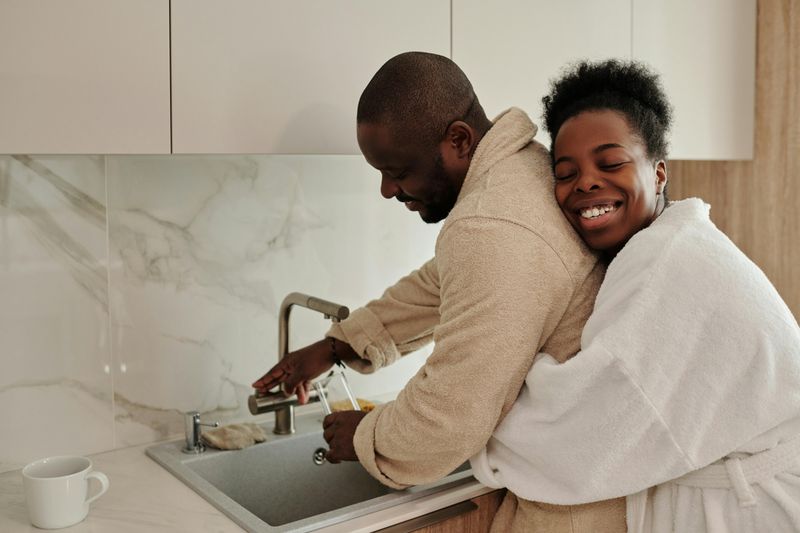10 Things Couples Fight About That Aren’t Worth the Energy

Couples often find themselves entangled in quarrels over seemingly trivial issues. While it’s natural to have disagreements, not all of them warrant the energy they consume. From deciding what to eat for dinner to squabbles about household chores, these minor conflicts often detract from the joy and companionship in a relationship. By recognizing which battles aren’t worth fighting, couples can focus their energy on nurturing their connection and enjoying their time together. In the spirit of harmony and understanding, here are ten things couples often argue about that aren’t worth the fuss, along with practical solutions to address them.
1. What to Eat for Dinner

With appetites as varied as the cuisines available, deciding on dinner can be a nightly tug-of-war. One partner might crave spicy Thai while the other longs for Italian comfort food. Instead of turning the dinner decision into a battleground, why not establish a system? Rotating who chooses the meal or taking turns can simplify the process and eliminate unnecessary stress.
Some couples even set specific nights for dining out or cooking in, which adds a layer of predictability and excitement. Flexibility and compromise can turn a potential argument into a shared culinary adventure.
2. Household Chores Done Differently

When it comes to household chores, everyone has their own way of doing things. You might fold towels into perfect rectangles, while your partner prefers a more relaxed approach. These differences can lead to tensions if not handled with empathy and understanding.
Rather than insisting on the “right” way, appreciate the fact that the task is getting done. Sharing responsibility and learning from each other’s methods can turn chores into a bonding experience. A simple acknowledgment of effort can go a long way in maintaining harmony.
3. Temperature Preferences

Temperature preferences can often make home life feel like a thermostat tug-of-war. One partner might enjoy a cozy warmth, while the other thrives in cooler climates. Instead of letting these differences create a chill in your relationship, it’s better to find a middle ground.
Using fans or extra blankets can help both parties feel comfortable without constantly adjusting the thermostat. It’s the small compromises that keep the relationship warm and welcoming, even when the temperature isn’t.
4. Leaving Lights On or Off

Leaving lights on or off is a common source of friction in many households. While one partner may be energy-conscious, the other might just forget to flip the switch. Rather than letting this turn into a recurring argument, seeking a practical solution can ease tensions.
Installing motion sensor lights or setting reminders can help change habits without the need for constant reminders. Such small changes can brighten both the home and the relationship.
5. Driving and Directions

Navigating life together can feel like a road trip with its share of wrong turns and reroutes. Criticizing each other’s driving or navigation skills can put a dent in the journey. Instead of turning the car into a battlefield, trust in technology like GPS for guidance.
This allows both partners to relax and focus on the journey rather than bickering over directions. Embracing the adventure and enjoying the ride can make travel time a time for connection rather than conflict.
6. Social Media Habits

In the digital age, social media habits can often create rifts in relationships. One partner may enjoy scrolling through feeds, while the other sees it as a distraction. Instead of letting this become a source of contention, setting boundaries can bring balance.
Agreeing on tech-free times or shared activities can ensure that social media doesn’t overshadow quality time together. By prioritizing presence over pixels, couples can maintain a healthy digital and personal balance.
7. Toilet Seat Up or Down

Ah, the age-old debate of the toilet seat position. This small, but significant, issue can lead to daily skirmishes. Instead of keeping score on who left it up or down, agreeing on a simple compromise can save energy.
Placing the seat down after use is an easy fix that benefits everyone and keeps the peace. It’s the little acts of consideration that often speak volumes in maintaining harmony.
8. TV Shows or Movies

Movie night can sometimes turn into a standoff over what to watch. One person loves thrillers while the other prefers rom-coms. Rather than letting different tastes in entertainment spark a feud, try alternating choices or finding a neutral ground.
Sharing and discovering each other’s favorites can be a fun way to bond. It’s these moments of compromise and shared laughter that truly define the relationship, rather than the content on the screen.
9. Minor Style or Fashion Choices

Fashion is subjective, and what one partner loves, the other might not. Whether it’s gym attire or casual wear for a grocery run, minor style choices shouldn’t overshadow the relationship. Accepting each other’s personal style can foster acceptance and individuality.
After all, it’s not the clothes that make the relationship, but the wearer. Celebrating unique expressions of style can add color and character to everyday life together.
10. Who Forgot a Small Errand

Forgetting a small errand like picking up milk can seem monumental in the moment. However, these minor slip-ups are part of everyday life and aren’t worth a major fallout. Approaching these moments with grace and teamwork can keep things light and humorous.
Everybody makes mistakes, and learning to laugh at them together strengthens the bond. It’s the forgiving and understanding attitude that creates a resilient partnership.

Comments
Loading…